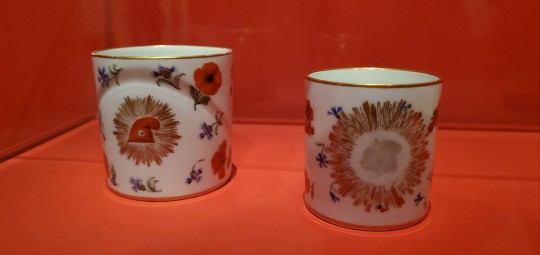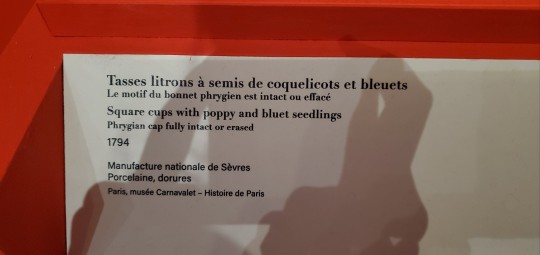Historical posts go here. Interests include, but are not limited to: the French Revolution, castrati, socialism, ancient Greece, 16th century France. Also, prehistory (I have a B.A. in archaeology). Living experience with one of those (socialism, obviously). I am a social anthropologist so my interests often focus on issues such as culture, myths (what people believe to be true) and representation of history.
Don't wanna be here? Send us removal request.
Photo


Jacques-Louis David’s Tennis Court Oath including name-key.
560 notes
·
View notes
Text
I wish we could have a nuanced conversation about queer erasure without one side screaming all historians are homophobic and are trying to hide queer history from you and the other side screaming no historians are trying to hide anything from you and any critic of academia is anti-intellectualism.
Historians are people. Like any other kind of people they each have their own biases that affect their work. Some historians are queerphobic and will absolutely hide queer history from you intentionally. Some historians are not queerphobic but will perpetuate queer erasure by not actively questioning the research of the queerphobic historians who came before them. And some historians are not queerphobic and are actively trying to undo the damage of queer erasure.
#history#18th century#just like we would be able to guess the context of our stuff better than people in 2350s will be able to do that
2K notes
·
View notes
Text




*The decorative plate is said to be a souvenir from La Fayette visiting Vizille in 1829 just after his granddaughter Nathalie had married Adolphe Perier in 1828 (the Perier owned Vizille at the time). Both family were against king Charles X. Still, what a silly plate.
#i am a basic bitch and i choose tge obvious#although i must say 2 has the most gilbert vibe#fun#frev#gilbert
46 notes
·
View notes
Text
The kids: Dad ! Dad ! Dad ! Hello, hello, hello !! A man: [I can't make out what he says, probably shouting at the kids to get down] A lady: They're going to kill themselves ! A man: Make them climb down ! The father: I don't give children any orders. The man: But they are yours ? The father: Precisely, sir. I'm letting them express themselves [the literal translation would be sth like "I'm letting their instinct blossom"]. The man: Let's be serious, they aren't apes... The father: And what do you have against apes ? Have you read Jean-Jacques Rousseau ? The man: No, why ? The father: Everything on this Earth is good as long as we respect the state of nature, without the lies of etiquette.
This is happens in the first 15 minutes of Les Mariés de l'An II (1971) and I knew the movie was going to be good. Anyone else saw the father being a Rousseau fan from a mile away ?
16 notes
·
View notes
Text
One very stupid thing that bothers me in historical romances and fanfic is the fact that male characters often take off shirts but stay in their breeches. The breeches aren’t the last layer of underwear, the shirt is. The shirt is the body linen— that’s the thing that goes against the skin and is the first thing to be put on and the last thing to be taken off— that’s the thing that is sewn by hand by wife/ sister/ daughter/ mother partly out of a lack of extensive manufacturing but because it is the most intimate layer of clothing and you don’t want a stranger’s work against your skin.
Is it just because to modern eyes it would look silly? Is this a case of “I got too interested in the material culture of body linens in the Regency era and now I know too much to enjoy myself”??
17K notes
·
View notes
Text
So, 1? Mary? 🍿🍿🍿
I like obnoxious trivia questions.
Here’s one:
How many queens of France were decapitated?
18 notes
·
View notes
Text
Wait, neither was Mary. So 0?
I like obnoxious trivia questions.
Here’s one:
How many queens of France were decapitated?
18 notes
·
View notes
Text
Wrong! Marie Antoinette was not a queen when she died.
I like obnoxious trivia questions.
Here’s one:
How many queens of France were decapitated?
18 notes
·
View notes
Text



POV: the year is 1794 and you're drinking your coffee in revolutionnary bucolic cups
— from the Carnavalet temporary exhibition: Paris 1793-1794: une année révolutionnaire
165 notes
·
View notes
Text
I saw Robespierre's briefcase again in the Carnavalet's temporary exhibition Paris 1793-1794: une année révolutionnaire. The briefcase used to be in their permanent display but was removed at some point between summer 2022 and 2023. They rotate the artefacts on display, and it's also possible the briefcase is fragile.
The cool thing is the way it was displayed in the 1793-94 exhibition allowed for a much closer look at it.
I previously could only read "Robespierre" on the front but turns out it also says "Correspondance de la veille"; makes one wonder how many of such briefcases he had for different files ?





94 notes
·
View notes
Text


A terra cotta Brutus seemed appropriate for today's posting
— from the Carnavalet exhibition Paris 1793-1794: une année révolutionnaire
102 notes
·
View notes
Text
Marie Antoinette glazers actually infuriate me. I got ratioed hard.. in the hundreds. Someone bring my sanity back—seriously. I’m disillusioned. These people claimed she was 100% without fault. The French Revolution was unnecessary and the people of France were ungrateful and jealous of the monarchy because they were poor. I really need my sanity back and I need like-minded people to assure me I’m not losing my fucking mind.
180 notes
·
View notes
Text

Napoleon about Alexandre but instead of venting on Reddit he’s inexplicably telling this in a letter to his wife, Josephine
48 notes
·
View notes
Text

Not only did I miraculously survive the first assassination you all know about, I also survived the assassination attempt on that other impostor too
13K notes
·
View notes
Text
if you think about it everything is about the fall of the roman republic
192 notes
·
View notes
Text
Yes. 😭 I made a mistake.
And it was not about making any meme. It was me being ND and wondering why the spoon and knife were missing.

Years of a meme that made Saint-Just look like an idiot based on absolutely nothing ._.
I mean, I can't complain @frevandrest; it was my fault for not checking correctly/understanding that you meant this kit which is obviously complete? It's not a set to use at home, and it's not just for eating either. A lot of that is used for writing.
12 notes
·
View notes
